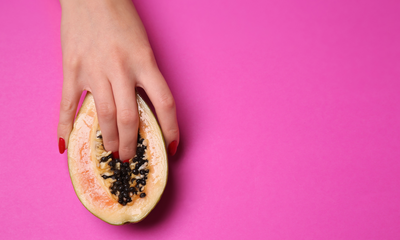Constantly Being Stuck In A World Where You Are Told Anxiety And Depression Is Not Meant For You
You are not going to therapy, “eso es para gringos”, my parents would tell me, as I would push back the tears I was too scared to let run down my face. At the age of 14, I did not know the definition of depression nor knew people that had depression in my Latinx community, yet somehow I knew I had it. I remember writing letters to myself, “I promise I’ll be okay somewhere else but here”, and instantly sneaking it under my bed, hoping my parents would find it the next day after my attempt of running away. These waves of depression became so common, I would take it as if it was normal—just a regular brown kid trying to survive and live up to her parent’s expectations. However, as a First-Generation Latina, depression is more than just a ‘period of sadness’. It turns out to be an inconvenience of time, money, and energy. I remember when I first brought up ‘depression’ as a first year college student my parents stated, “but look how blessed you are”, as if my emotions were just a part of the devil bringing me down. Coming from a Catholic-Christian home, it was taken as if God had the answers to everything. Mental disabilities then become invalidated because of the belief that our depression is part of a ‘punishment’ the supernatural world is giving us, while then dismissing the need of medicine as a possible treatment because ‘us’ as Latinxs do not have ‘those kind’ of issues.
I believe it is difficult for our parents to believe in mental disabilities because they come from a place of violence, traumas, poverty, and discriminations that I cannot imagine going through. However, this can be damaging to First-Generation folks because not only does that make us feel like our ‘depression’ is not real, but also then shamed for putting other family members in uncomfortable situations. One time for a holiday, I remember that I was going through a crisis at the dinner table, and somehow I found myself crying in the bathroom for hours. Family members then stated, “Stop being a party-pooper” or “solo espere hasta la casa, no dañe la noche, que pena”, as if I could control these waves of depression. It made me feel as if I ruined a special night not just because it was a holiday, but because I was suppose to be a great example for the family: “A Straight A Student Coming Back From Syracuse”. Let’s just say, we left early and I never stepped a foot into that house again because, ‘till this day, I still feel like an embarrassment.
I am very privileged to say that I had the access to therapy because of my prestigious University. However, it took my parents many years to realize my depression and anxiety was serious. It was not until I ended up in the hospital, that they noticed how wrong it was to deny I needed Xanax and counseling. My parents are very hard-working, just like many immigrant or recent citizen families are, which means they do not have the time because they tend to work long shifts at low paying jobs and also do not have access to education about mental disabilities. They took the time to hear me out and give me that support that I know a lot of Latinx folks do not have.
My father never believed in the pills I took. He said, “it is a tool the government makes you believe you need it and gets you addicted”, which to be fair can be true in various ways. However, I do not shame the people that take pills because of course, it helped me. For us, it is common for parents to not believe in medicine but rather home medicine that tracks us down to our ancestors. My parents made sure to be there for me more often despite their busy schedules, send me biblical quotes that did not make me feel ashamed but rather empowered, and learn more about mental disabilities on their own. It is still not perfect in my household, but at least they validate my existence, which has been part of the healing process. So for those Latinx kids out there that have mental disabilities: I know it can be tough, especially if you do not have the resources of therapy, medicine, etc. Always remember that at end of the day, nuestra gente just needed communities to heal. So search for that and remember you are not alone. Remember that your parent(s) came to this country so that you can follow your own dream. Decolonize yourself from the mindset that you are responsible for your parent’s ‘American’s Dream’, which is something I still struggle with every day. I love you. I am here for you & so is todos nostros.
P.S. – Some therapeutic ways I coped with disability: Yoga, the app: Calm, listening to music I enjoyed and writing in my journal. There are also great articles and videos out there such as Mitu’s video that was posted on the Huffington Post called, “People of Color Discuss Their Experiences with Mental Illness” and an online therapist, which many folks I know used as well.






